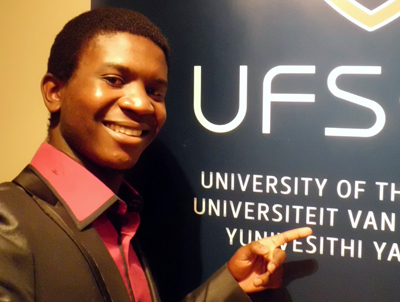 |
Ifa Tshishonge
24 June 2013 |
Student leaders from around the world, representing countries such as the United States, Germany, Japan, India, Pakistan and Vietnam, will take part in a global leadership camp at Mahasarakhan University (MSU) in Thailand from 24 June to 4 July 2013. Among them will be a Kovsie student, the only representative from the African continent.
Ifa Tshishonge, a third-year LLB student, is heading to MSU where he will engage with other young leaders in matters such as community service projects, public speaking and eco-tourism. The camp will give students an opportunity to develop their leadership skills. About 80 students will participate, 20 of them representatives from MSU. The rest are delegates from partner universities from around the world.
Tshishonge is excited to interact with fellow young leaders. “As the only African representative, I am looking forward to being part of a group which will continue to create economic and societal progress in a responsible and sustainable manner on a global scale,” he says.
This Kovsie has steadily been gravitating toward leadership roles. He has served in the SRC as a member of the First Generation Student, as well as a member of Constitutional Affairs subcommittees.Tshishonge is currently the chairperson of the Reformed Church Bloemfontein Student Fellowship (RCBSF) Association on the Bloemfontein Campus.